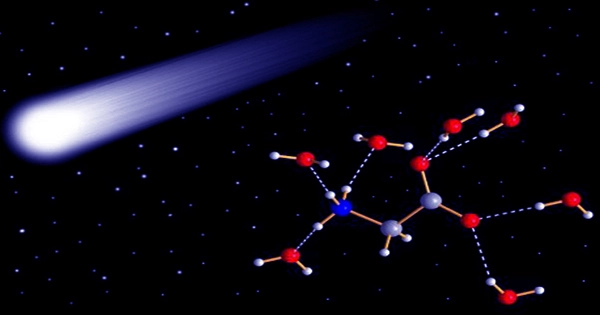One of the 20 amino acids required by humans has been identified by astronomers in the Perseus Molecular Complex, a star-forming region 1,000 light-years from Earth. Tryptophan is the amino acid in question; it is essential for newborn growth and is required to produce proteins, enzymes, muscles, and neurotransmitters in adults.
The Perseus Molecular Complex as a whole is invisible to us and conventional optical instruments, but not to infrared instruments, which flash brightly. That’s wonderful news for researchers seeking for chemicals like tryptophan, which has a characteristic infrared light signature. As a result, it was selected as a potentially interesting target.
Astronomers examined observations of the IC348 area, where approximately 400 stars have formed, using data from the now-retired Spitzer telescope. The majority of the stars are low mass, as in other star-forming areas, and Spitzer earlier discovered that half of them have material circling them. About 120 of those stars are disks from their formation, which occurred only 2 million years ago.

“The discovery of tryptophan in the Perseus molecular complex should spur further research into other amino acids in this and other star-forming regions.” “It is a very exciting possibility that the building blocks of proteins are widely present in the gas from which stars and planets form – it may be critical for the development of life in exoplanetary systems,” said lead author Dr. Susana Iglesias-Groth of the Instituto de Astrofsica de Canarias in a statement.
Amino acids have been discovered in a variety of space settings, including meteorites, asteroids, and comets. They have been discovered in extreme environments such as the atmosphere of Venus, therefore their finding in interstellar space is not as dramatic. They are at a pleasant 7 °C (44.6 °F) around IC348, which is not bad for interstellar space. This data agrees with Dr. Iglesias-Groth’s prior studies of the temperature of hydrogen and water molecules in the interstellar cloud.
While neither striking nor unexpected, the finding of tryptophan indicates that amino acids are widespread. They are present because planetary systems have not yet formed, and they may play a role in their chemistry, just as they did in the chemistry of life on Earth.
















